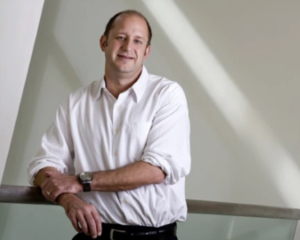 From temporary loss of taste and smell to strokes and seizures, it’s clear a number of people with COVID-19 are suffering central nervous system impact. You can learn about the newest research into this concerning issue when Neurobiology and Behavior Chancellor’s Professor Thomas Lane presents the first-ever virtual Dunlop School Dean’s Distinguished Lecture, Thursday, November 12th at 4 PM PST.
From temporary loss of taste and smell to strokes and seizures, it’s clear a number of people with COVID-19 are suffering central nervous system impact. You can learn about the newest research into this concerning issue when Neurobiology and Behavior Chancellor’s Professor Thomas Lane presents the first-ever virtual Dunlop School Dean’s Distinguished Lecture, Thursday, November 12th at 4 PM PST.
“Knowing SARS-CoV-2, the virus causing COVID-19, can access the central nervous system and remain there, we need to find out the long-term implications,” said Professor Lane. “The first step is to better understand the mechanisms of what’s taking place. We don’t know whether SARS-CoV-2 affects the central nervous system because it’s replicating inside the brain or if it’s causing a massive cytokine response.” Cytokines are proteins secreted by the body’s immune system.
His team, which brings two decades of coronavirus research to its mission, is initially focusing on learning how the virus gets into the brain. One possibility is it travels from the lungs or through the nose to enter what’s called the olfactory bulb. The olfactory bulb contains neurons that contribute to a variety of functions including smell. Professor Lane and his colleagues are also probing what happens at the brain’s molecular and cellular levels during infection. In addition, the team wants to discover if conditions such as diabetes and cardiovascular disease make it easier for SARS-CoV-2 to penetrate the central nervous system.
Professor Lane joined Dunlop School in 1998, serving in the Department of Molecular Biology and Biochemistry and as director of the Multiple Sclerosis Research Center. During a sabbatical about six years ago, he and his family relocated to Utah for its outdoor recreational opportunities. They enjoyed the region so much that the temporary move became longer term, with Professor Lane accepting a position on the University of Utah School of Medicine faculty. With his children now grown, he was delighted to recently return to Dunlop School.
“There are so many amazing areas of expertise here that make Dunlop School ideal for conducting investigations into SARS-CoV-2,” he said. He cites as one example UCI’s nationally-known BSL-3 Biosafety Training Program, which educates laboratory personnel on how to safely work with infectious diseases. “I love UCI and this is a fantastic place to do research.”
